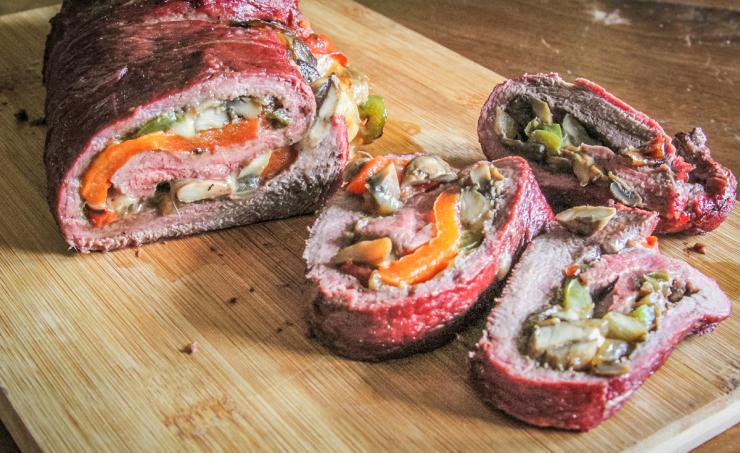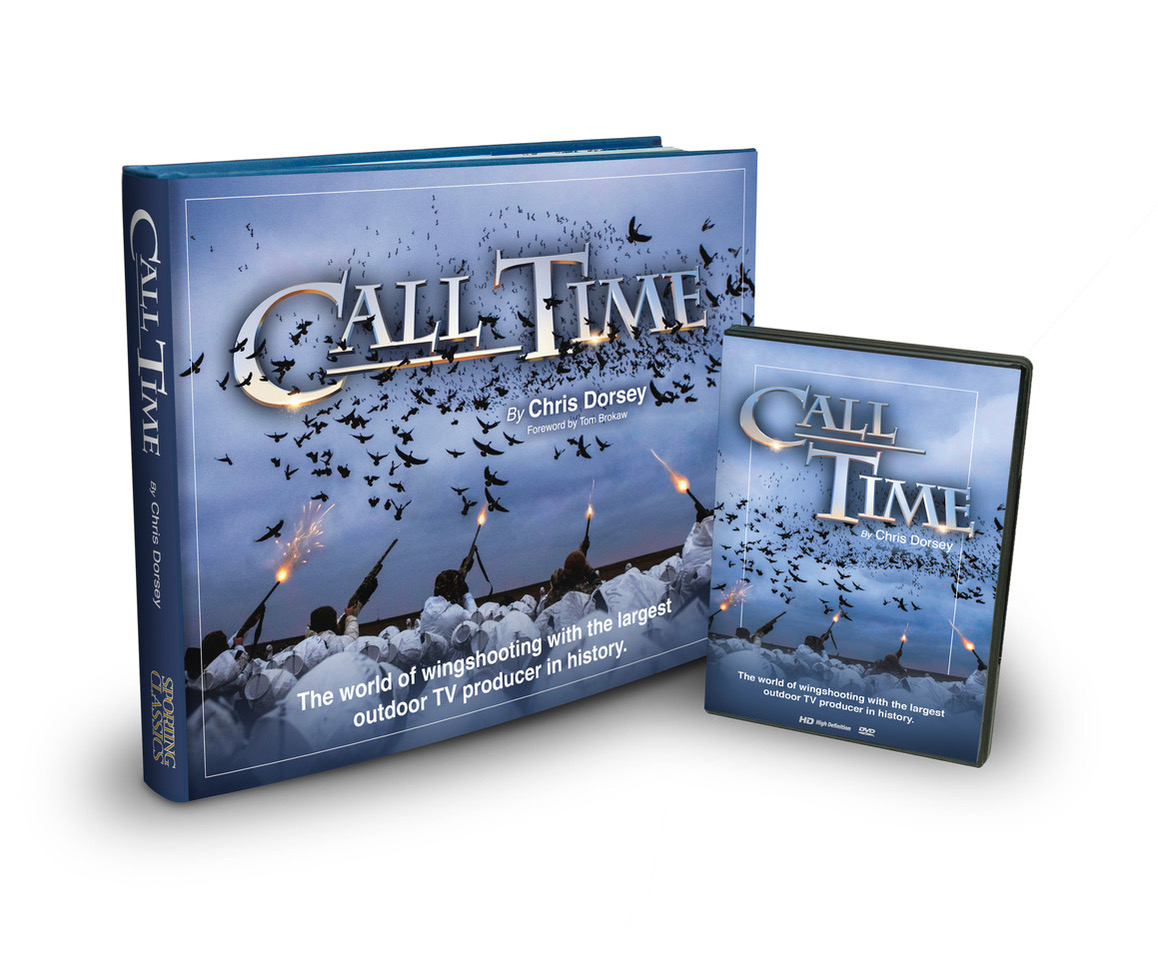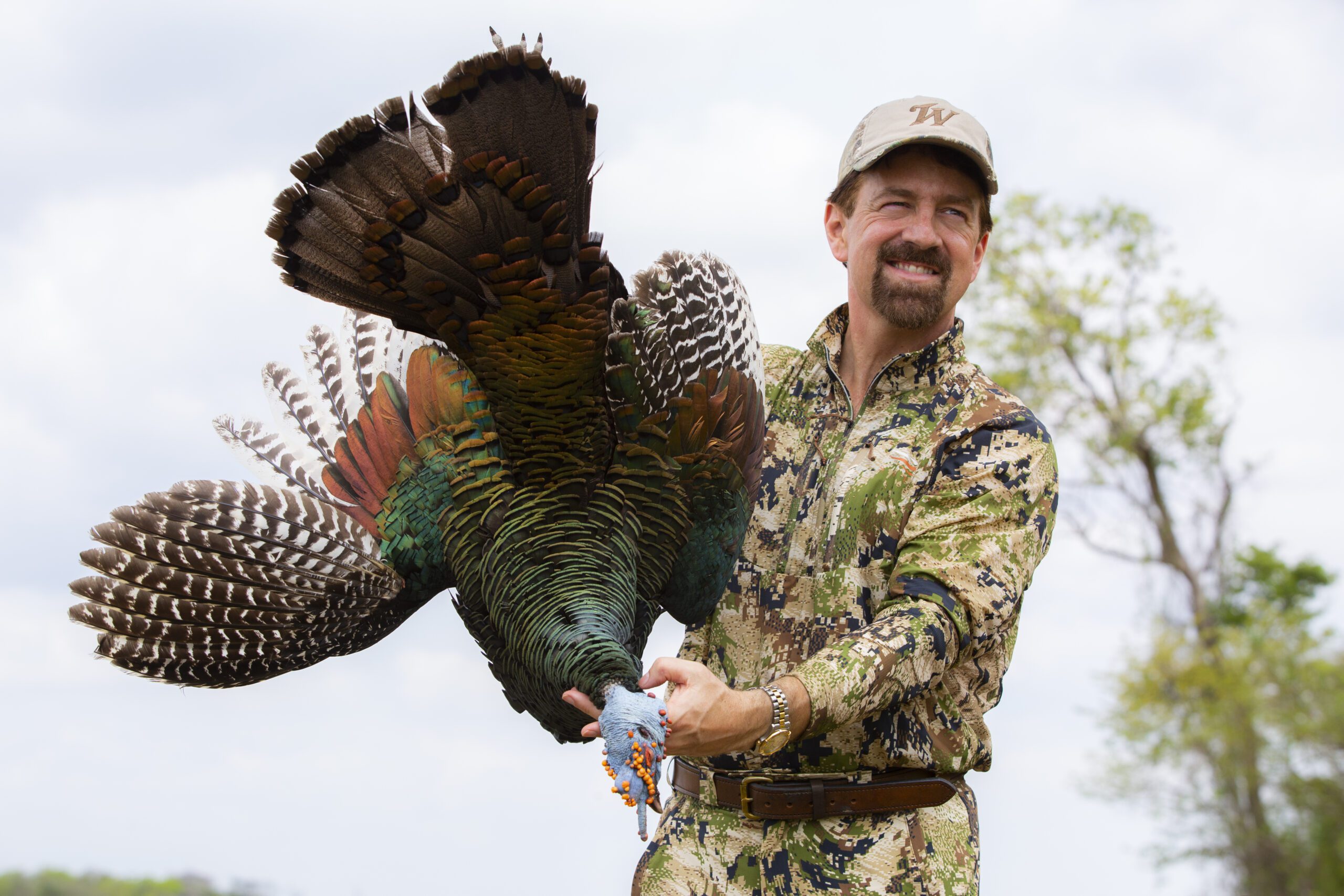“It must be remembered,” said Winston Churchill, “that the function of Parliament is not only to pass good laws, but to stop bad laws.”
In recently moving to ban the importation of animals taken by hunters — predominantly from its former colonies in Sub-Saharan Africa—some members of the British Parliament has once again signaled to black leaders that they are too ignorant and undisciplined to manage their wildlife affairs and care for their own people. Such condescension is nothing new in Britain’s storied history, but it does, in part, explain how a kingdom that once spanned a quarter of the planet (“The sun never sets on the British Empire,” as Joyce wrote in Ulysses) would now fit inside the state of Oregon with room to spare. Disregard the will of nations and sooner or later they revolt.

Anti-poaching teams throughout much of Africa are funded by licenses and fees paid by international hunters. When Kenya closed legal hunting of elephants in 1973, there was no longer money to maintain anti-poaching efforts and the nation’s elephants were slaughtered en masse. AFP VIA GETTY IMAGES
In passing the Animals Abroad Bill, Parliament sides with celebrity bilge pumps like Piers Morgan and Joanna Lumley and ignores the pleas of African leaders and more than 100 of the world’s top experts who warned of disastrous consequences should this bill pass in an open letter to the legislative body.
“The UK Government’s proposed ban on the import of hunting trophies is poorly conceived,” writes the group comprised of nearly 50 doctorate-level wildlife professionals (including several from Oxford University), “and is unlikely to deliver any of its claimed conservation benefits. Instead, it threatens to reverse many conservation gains while undermining the livelihoods, rights and autonomy of rural communities across sub-Saharan Africa and beyond.”
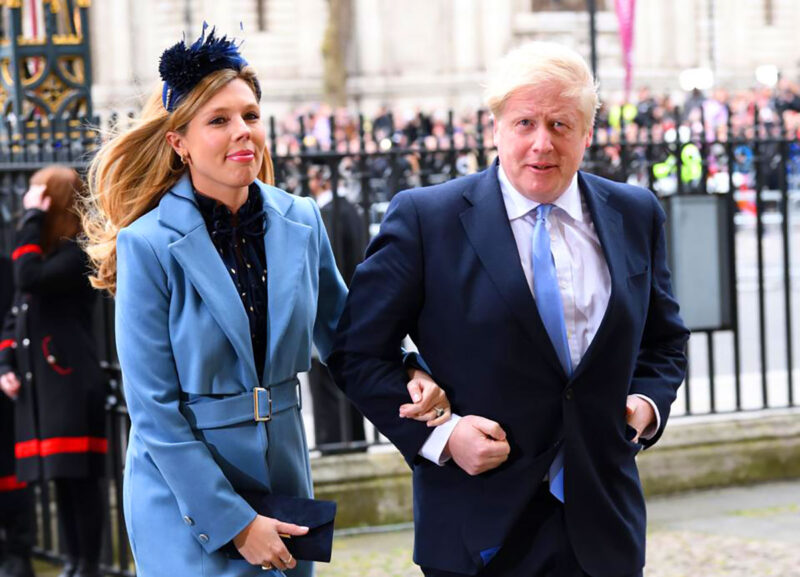
British Prime Minister Boris Johnson and wife Carrie were strong proponents of the UK’s proposed trophy import ban. Experts warn, however, that the ban will reverse numerous conservation gains across the African continent. WIREIMAGE
Hunting bans have a long history of failure but, evidently, few members of Parliament are students of conservation history. Most famously in 1973, Dr. Richard Leakey aided in ending legal elephant hunting in Kenya. Images of stockpiles of ivory being burned in massive bonfires were broadcast from London to New York and beyond and the good doctor was heralded as the savior of elephants.
Without the funds from elephant hunters who paid large sums to hunt small numbers of the animals, however, there was no money for anti-poaching efforts and there was no one left on the land to care about the fate of the great beasts. By 1989, the country’s elephant population had plummeted to fewer than 20,000 from a high of 275,000 as a direct result. The law of unintended consequences prevailed — as it so often does when emotion trumps science and facts — and poachers seized the day, annihilating that nation’s herds and relegating remnant populations to a handful of parks.
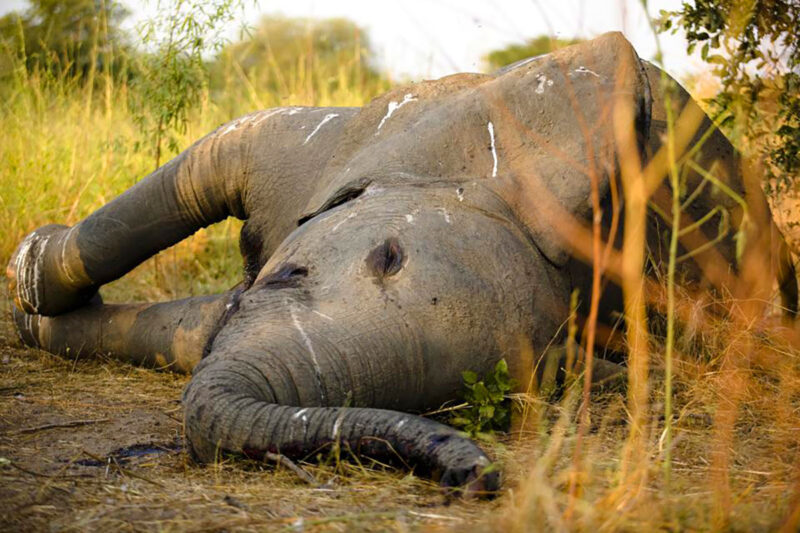
Demand for ivory, rhino horn and many other illicit animal parts remains high across Southeast Asia. African nations that have well-regulated hunting also have the highest populations of elephants and many other species. When locals benefit from the fees paid by international hunters, they have a vested interest in the survival of wildlife. GETTY IMAGES
One fact that you can take to the World Bank is that if you create an economic vacuum in Africa, the Chinese will fill it. No one is celebrating the UK’s new law more than the Southeast Asian animal traffickers that trade in every imaginable animal part from rhino horn and elephant ivory to shark fins and bear gallbladders…to say nothing of pangolins, gorilla hands and tiger claws among many other dismembered species. If the UK’s ban were to spread to other western nations, many experts believe it would decimate African wildlife populations by signaling a free-for-all to poachers who forever have willing buyers for their illicit goods in Asia.
For the animal rights groups behind the UK’s trophy import ban, such campaigns are about their financial gain — not the well-being of wildlife populations. About a decade ago, I went to the headquarters of the World Wildlife Fund in Washington D.C. to discuss an initiative the organization was advancing called Freedom to Roam — a worthwhile program designed to raise awareness about the importance of wildlife corridors around the world. Part of the discussion included the success of communal conservancies that were established in Namibia in 1998, allowing locals to have a say in how wildlife was managed and benefiting from sustainable approaches — including hunting whose funds go directly back to communities to support anti-poaching operations, wildlife management, and education and health initiatives.
According to the WWF, “The model has produced impressive gains for wildlife; Namibia’s elephant population has more than tripled, black rhinos, once near extinction, have rebounded and free-roaming desert lions — reduced to less than 25 by the mid-1990s — now number over 150 and cover vast expanses of northwest Namibia.”
That same sentiment is shared by Safari Club International (SCI), a 50,000-member organization comprised significantly of American big game hunters — the same people who provide the economic incentives for indigenous people to tolerate lions, leopards, elephants and other species rather than shooting, snaring or poisoning them as cattle killers and crop raiders. SCI is the frequent target of attacks from animal rights groups, but the organization — like WWF — realized early on that there can be no sustainable future for African wildlife without the support of African officials and communities. By reaching out to African nations, SCI and others have given voice to the continent’s conservation leaders who contend that without international hunters their wildlife populations and people will suffer.
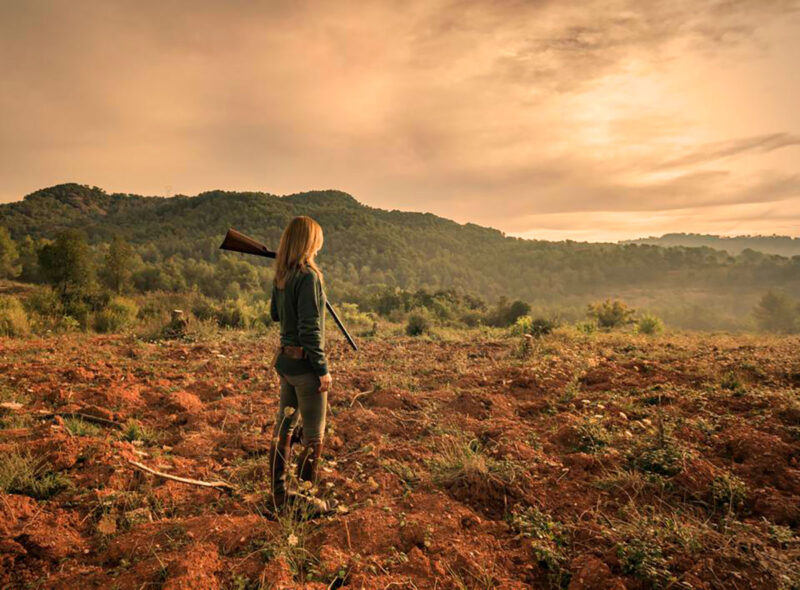
Without funds provided by international hunters, communities across Africa often see wildlife as a threat to crops and livestock. Consequently, a wide range of animals are snared, shot and poisoned when locals see no benefit from their existence. GETTY
“It should come as no surprise that hunters want more wildlife — and not just game species,” says SCI CEO W. Laird Hamberlin. “That’s where we differ from animal rights groups, because they offer no solution to secure the future of African wildlife — they merely peddle emotion to raise money to line their own pockets with a complete disdain for the people who must live among these animals.”
A person doesn’t have to like the act of hunting itself to support the outcomes of what the activity brings to wildlife populations and people across Africa. Animals die in nature every second of every day (often in gruesome ways) but if our focus turns to the fate of an individual animal rather than the greater good of the herd, both the individual animal and the broader population suffer. Therein lies the crux of the issue for many in the ranks of animal rights organizations who are willing to forego the sustainability of a wildlife population to eliminate the act of hunting. Their focus is not to ensure the future of wildlife populations, but rather it is to end hunting…at any cost — even if that price is wildlife decimation.
One of the groups backing the new UK law is Humane Society International, an offshoot of the Humane Society of the United States. Review HSUS’s tax returns and you’ll see that the organization declares offshore “investments” totaling close to $70 million, mostly in the Caribbean — the Caymans and Bermuda among other apparent animal-suffering locations. What you won’t find in their records is much in the way of conservation initiatives or anti-poaching efforts. Evidently, they prefer to leave that work to hunters.
While animal rights groups try and portray trophy hunters as fringe elements of society, when those same animal rights groups attack meat consumption; pet ownership; beef, dairy, poultry and pork production; dog and horse shows; leather goods; game fairs; medical research that would save human lives (Ingrid Newkirk of the People For the Ethical Treatment of Animals famously once saying, “Even if animal tests produced a cure [for AIDS] we’d be against it.”) and the like, they run out of sympathetic constituents. So, ultimately, do those who support them. It is only a matter of time before these same groups put Parliament in untenable situations over the UK’s own countryside pursuits — including hunting. Members of the House of Commons would be wise to be cautious about aligning with animal rights groups, for can kidney pie be far behind and what’s to happen when they gore oxtail soup?
As Churchill warned, “An appeaser is one who feeds a crocodile — hoping it will eat him last.”
This article originally appeared in Forbes.
About the author: Chris Dorsey is a biologist and award-winning conservation journalist whose work has appeared in scores of publications including the Wall Street Journal, Newsweek, Forbes, National Geographic, the Robb Report and many others.
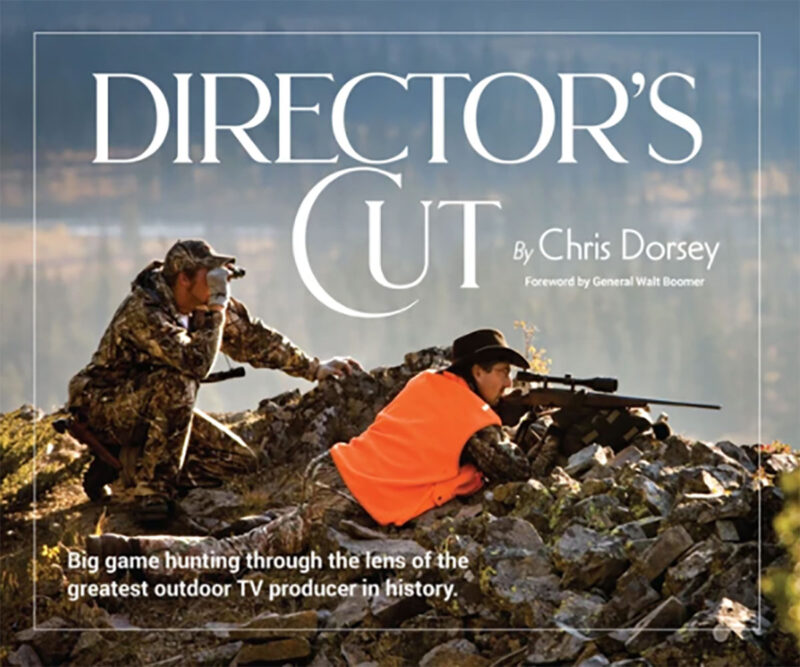 The world of sporting literature has a new classic from one of the planet’s most widely traveled hunters. Director’s Cut…Big game hunting through the lens of the largest outdoor TV producer in history, is a book and film production more than 10 years in the making. Author and Executive Producer Chris Dorsey, along with a team of the world’s best sporting life photographers and cinematographers, embarked on expeditions to distant corners of the globe to create an indelible portrait of big game hunting.
The world of sporting literature has a new classic from one of the planet’s most widely traveled hunters. Director’s Cut…Big game hunting through the lens of the largest outdoor TV producer in history, is a book and film production more than 10 years in the making. Author and Executive Producer Chris Dorsey, along with a team of the world’s best sporting life photographers and cinematographers, embarked on expeditions to distant corners of the globe to create an indelible portrait of big game hunting.
Dorsey has spent the past 25 years investigating and chronicling the animals, people and unforgettable places home to remarkable big game hunts while producing nearly 60 outdoor adventure television series. In the process, his teams amassed a library of more than 100,000 hours of HD footage and nearly 150,000 photographs, making Director’s Cut (the book and DVD) an unmatched celebration of the world of big game hunting. Buy Now


